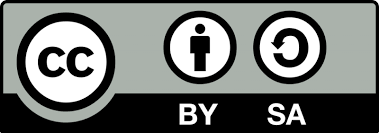School director training and Educational Inspection
DOI:
https://doi.org/10.23824/ase.v0i33.688Downloads
Abstract
Based on a review of the most characteristic functions associated with the performance of the inspectorial function, typical of a democratic professional model, we highlight the importance that we attach to those that have the greatest impact on the professional development of the collective of school directors: training and advice. Taking into account the researches of the doctoral thesis about Educational Inspection Service in Spain between 2008 and 2019 and those found through a review of the literature in the same period, it is clear that our subject of study appears still weak as a central focus of analysis or it deserves tangential and anecdotal consideration. In this article, we aim to provide an overview of practical reflections and proposals for action aimed at improving the performance of these functions by the collective inspector.
References
Alcalá, M. L. (2016). ¿Debe ser la Inspección impulsora de la innovación en los centros educativos?, Avances en Supervisión Educativa (26), diciembre.
Amador-Valerio, O. (2016). Principal succession: Lost in the shuffle. San Diego State University. Disponible en https://bit.ly/3gExyQS
Antúnez, S. (2009). La Inspección educativa y la evaluación de la formación permanente de los profesionales de la educación escolar, Avances en Supervisión Educativa. Revista electrónica. (10), mayo.
Antúnez, S. y Güell, M. (2019). La dirección de sí mismo. Orientaciones para directores y directoras escolares. Barcelona: Horsori.
Antúnez, S., Silva, P., Slater, C. (2019). Attention to the Rights of Students Who Are Children of Immigrant Families. The Case of High Complexity Schools in Catalonia, Spain. En Arar, K., Brooks, J. S. & Bogotch, I. (Ed.). Education, Immigration and Migration. Policy, Leadership and Praxis for a Changing World. Emerald Publishing. 251-266. doi:10.1108/978-1-78756-044-4201910153
Ayarza, S. (2018). Evaluación de las direcciones de centros públicos en Euskadi, Avances en Supervisión Educativa, 30(diciembre), 1-22. https://doi.org/10.23824/ase.v0i30.637
Barrio, E. y Lorente, A. (2018). La Inspección de Educación en España y la formación inicial de los directores: una revisión desde el modelo de Aragón. Avances en Supervisión Educativa, (29). https://doi.org/10.23824/ase.v0i29.622
Bennet, F., Carpenter, V. & Hill, M. (2011). Passing the Baton: Principal succession in schools. Leading and Managing. Journal of the Australian Council for Educational Leaders. Autumn/ Winter, 17(1), 28-45.
EduTrends (2015). Aprendizaje basado en retos. Observatorio de Innovación Educativa. Tecnológico de Monterrey. Disponible en https://bit.ly/2XT9ylq
FEDADI (2017). Un marco español para la buena dirección escolar. Federación de Asociaciones de Directivos de Centros Educativos Públicos. Disponible en goo.gl/omb1BG
López del Castillo, Mª. T. (2013). Historia de la inspección de primera enseñanza en España. Madrid: Ministerio de Educación, Cultura y Deporte.
López-Yáñez, J., Sánchez-Moreno, M., Altopiedi, M. y Oliva, N. (2018). Formación de directivos escolares mediante un programa basado en el coaching grupal, la retroalimentación y el análisis de la práctica. Profesorado. Revista de Curriculum y Formación del Profesorado, 22(1), 481-500.
Méndez-Pérez, M. A., y Pérez-Serrano, F. M. (2017). Supervisión y asesoramiento de las funciones del equipo directivo, en Vázquez Cano, E. (Coord.) La inspección y supervisión de los centros educativos. Madrid: UNED, 363-391.
Llorente, A. y Ortells, A. I. (2012). La formación del profesorado y la Inspección de educación. El caso español y francés. Fórum de Aragón, 6(10), 32-38.
Masriera, R. (2020). Evaluación de la función directiva, Aula, (292), 48-53.
Mayorga, A. (1999). La Inspección en el nivel de Educación Primaria. Proceso histórico. Revista de Educación, 320(1999),11-38.
Molero, A. (2010). La inspección educativa y el perfeccionamiento del profesorado: una visión retrospectiva. Participación educativa. Revista del Consejo Escolar del Estado. Marzo, 180-189.
OEI (2017). Miradas sobre la educación en Iberoamérica. Desarrollo profesional y liderazgo de directores escolares en Iberoamérica. Madrid: Instituto de Evaluación (IESME) de la OEI.
Poggi, M. (2001). La formación de directivos de instituciones educativas. Algunos aportes para el diseño de estrategias. Buenos Aires: IIPE/UNESCO.
Salavert, R. (2015). Coaching: An Apprenticeship Approach for the 21st Century. International Journal of Educational Leadership and Management, 3(1), 4-24. DOI: 10.4471/ijelm.2015.02
Silva, P., Del Arco, I. y Flores, O. (2017). La formación de directores escolares en Cataluña. Lecciones aprendidas a cinco años del Decreto de Dirección, Bordón ,109-124. DOI: 10.13042/Bordon.2017.49427
TESEO (2020). Base de datos de tesis doctorales de España. Disponible en https://bit.ly/2Mn0jng
Vázquez Cano, E. (2017). (Coord.) La inspección y supervisión de los centros educativos. Madrid: UNED.
Viñao, A. (1999). La Inspección educativa: análisis socio-histórico de una profesión, Bordón, 51(3), 251-263.
Wenger, E. (2011). Communities of Pratice. A brief introduction. University of Oregon. Disponible en https://bit.ly/2AKnVQ2
Weinstein, J., Cuéllar, C, Hernández, M. y Fernández, M. (2016) Director(a) por primera vez. Un estudio sobre la experiencia y socialización de los directores noveles en establecimientos municipales de Chile, Calidad de la Educación, 44(julio),12-45.
How to Cite
Issue
Section
Published
Keywords:
Inspection, training, school principals, professional development, counselingLicense

Attribution Share-Alike CC BY-SA
Those authors who have publications with this magazine, accept the following terms:
A) The authors will retain their copyrights, which will be simultaneously subject to the Creative Commons Attribution License that allows others to re-mix, modify and develop on your work even for commercial purposes, provided they credit you And to license their new works under the same terms.
B) The authors will retain the rights of exploitation of the intellectual property of this work, and especially the rights of reproduction, distribution, transformation in any of its modalities and public communication of said work, which will be simultaneously subject to the License Of recognition of Creative Commons that allows others to re-mix, modify and develop on your work even for commercial purposes, provided they credit you and license your new works under the same terms.
Creative Commons Attribution-ShareAlike 4.0 International Public License

